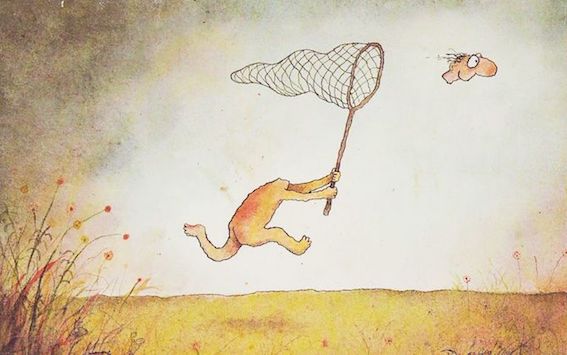Opening to uncomfortable experiences
For the past seven years or so, I've kept up a (mostly) daily mindfulness meditation practice. One of the things this practice shows me on a regular basis is how difficult it is to be really open. We are not used to opening to our felt experiences and sensations or to the unknown. Most of our moment to moment experience goes unnoticed in the swirl of life, as we are either too busy to stop and observe, or if space opens up we reach automatically for distractions. Both busyness and distraction are ways of avoiding or staving off the discomfort that simple or empty moments present (e.g. sitting on the bus, waiting for a coffee, eating a meal). Our daily lives are guided mostly by force of habit, and in particular, the habit of moving towards comfort and away from discomfort.
Meditation offers training in openness. It challenges us to simply
observe and sit with our experiences as they unfold. As a
method, it asks us only to watch. In insight meditation (which is the form I
practice), we are not trying to attain or get rid of any particular experiences.
The point is not to become calmer, more relaxed or to block out persistent thoughts (though these are common motivations for
practice). We're simply required to be with whatever is happening
right now, whether pleasant, unpleasant or neutral. Anyone who has ever
tried to meditate will know that this is not necessarily an easy task or a comfortable
space to occupy, at least initially. This is because sitting with our
experience brings us face-to-face with ourselves and our reactivity - all
the clever and colourful ways we escape simply being here.
One of the hardest parts of meditation is working with unpleasant experiences. For example, in my daily life I experience a lot of tiredness and fatigue. Unsurprisingly, this experience comes up routinely in my practice. I really don’t like feeling tired. Over time, I've developed a strong resistance to it and have even occasionally come to fear it. Yet when I sit down to meditate often sleepiness, heaviness and dullness of mind are my primary experiences. There is no escaping it. Can I sit with tiredness for 10 minutes, 20 minutes, 40 minutes? More than just endure it, can I open to it? Can I lean into the feeling of tiredness, savour it, be curious about it and get to know it? In other words, can I attend to tiredness?
The great challenge of this practice is in developing the capacity to stay with and explore uncomfortable experiences rather than banishing them. It is only by fully occupying our discomfort - finding our 'edges' - that we learn about ourselves and grow. As one of my teachers likes to say: 'Whatever's in the way, is the way'.
Sometimes I can open to tiredness and sometimes I can't. When I can, I observe all the felt bodily sensations and mental states that make up the experience we call ‘tiredness’: heaviness, slowness, drowsiness,
dullness, falling, blurriness, fogginess, sameness, darkness, blankness, pressure in the forehead, etc. Sometimes the sensations are
distinct, other times fuzzy; sometimes persistent, other times changing. When I'm able to observe openly I notice that there's very little thinking, and I'm simply feeling tiredness for what it is - a complex of sensations. On days when I don't want to sit with it, I observe my own resistance, my reactions at having to be with an experience I do not like or want. There's usually a lot of thinking: ‘I don’t like this’, ‘Why is this happening?’, ‘I can't meditate properly when I feel like this’. And with these thoughts come corresponding sensations. The body tightens (there's physical tension), stomach clenches, the mind
hardens and contracts, there's movement if I'm agitated, and I have a general sense of closing up or withdrawing.
Years of watching have taught me a few things. Firstly, experiences change and they pass (even if they come back again). No state is permanent. This includes my own relationship to whatever is happening. Some days I'm open to tiredness and can sit with a degree of equanimity, and other days I'm impatient, stroppy, resistant or defeated. It's true that in having attended to some version of this experience hundreds of times my reactivity has softened. But it hasn't gone away. And that's not the point. I'm simply now able to observe this reactivity without the subtle aggression of needing to fix it - with more kindness.
Secondly, being open to my experience (whether it's tiredness or my resistance) doesn't make the experience any better or more enjoyable. However it does result in clearer awareness of what is happening. The idea that an experience is good or bad is an interpretation and evaluation that has been added to felt states and sensations. It's the story we tell ourselves about whatever's occurring. In this sense, this practice teaches us that no experience is intrinsically good or bad, right or wrong (a common way of relating to difficult emotions or misfortunes in life). We just welcome some more than others.
As a practice, then, mindfulness meditation is morally neutral. It trains us to open to the moment in its barest and most honest form. Just this. Nothing else. This could be pain in my foot, a wandering mind, feelings of calmness or a deep aversion to something sensed. It doesn't matter. Whatever is there is laid bare for us to see.




Comments
Post a Comment